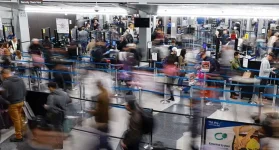The Trump administration aims to change how people travel to America. Foreign nationals from countries that fail US screening standards might face entry bans. These restrictions will affect journalists who should expect questions when entering or leaving the US.
A proposed plan targets more than 40 nations, including Iran, Russia, Venezuela, and several African countries, for full or partial travel limits. This policy builds on a previous ban from Trump's first term that the Supreme Court approved. Though delayed for now, the ban could appear with little warning. Border officers already check travel documents more carefully than before.
Since officials announced the travel ban, no journalists have reported problems. However, stronger border control, uneven enforcement, and wide agent authority create an unclear situation requiring advance planning. Journalists need to consider extended questioning at borders, device searches without warrants, and possible entry denial.
Border agents can ask about political connections, work history, and coverage of sensitive issues. They might want passwords for electronic devices. US citizens cannot be kept out, but might face delays. Non-citizens should answer all questions because officers can deny them entry.
Reporters should assess risks before traveling, know their rights, prepare for screenings, and follow digital safety steps. They should back up important information, remove sensitive data from devices, use strong passwords, and turn off devices when crossing borders. Staying calm and respectful helps when speaking with border agents.
A proposed plan targets more than 40 nations, including Iran, Russia, Venezuela, and several African countries, for full or partial travel limits. This policy builds on a previous ban from Trump's first term that the Supreme Court approved. Though delayed for now, the ban could appear with little warning. Border officers already check travel documents more carefully than before.
Since officials announced the travel ban, no journalists have reported problems. However, stronger border control, uneven enforcement, and wide agent authority create an unclear situation requiring advance planning. Journalists need to consider extended questioning at borders, device searches without warrants, and possible entry denial.
Border agents can ask about political connections, work history, and coverage of sensitive issues. They might want passwords for electronic devices. US citizens cannot be kept out, but might face delays. Non-citizens should answer all questions because officers can deny them entry.
Reporters should assess risks before traveling, know their rights, prepare for screenings, and follow digital safety steps. They should back up important information, remove sensitive data from devices, use strong passwords, and turn off devices when crossing borders. Staying calm and respectful helps when speaking with border agents.












